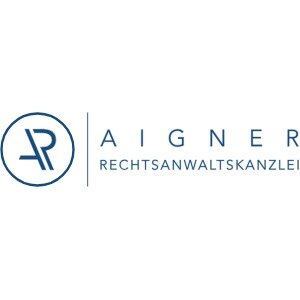Best Housing, Construction & Development Lawyers in Austria
Share your needs with us, get contacted by law firms.
Free. Takes 2 min.
Free Guide to Hiring a Real Estate Lawyer
Or refine your search by selecting a city:
List of the best lawyers in Austria
About Housing, Construction & Development Law in Austria
Housing, Construction & Development law in Austria encompasses a broad range of regulations and legal frameworks that govern real estate, urban development, construction processes, and housing policies. As a developed nation with a robust housing market, Austria's legal landscape ensures orderly development, sustainable construction practices, and tenant protections. This field of law addresses everything from land use planning and building permits to tenancy agreements and property disputes.
Why You May Need a Lawyer
Legal assistance may be crucial in a variety of situations involving Housing, Construction & Development in Austria. Individuals and businesses may require legal help when buying or selling properties, resolving construction disputes, navigating land use regulations, dealing with tenant or landlord issues, or ensuring compliance with local building codes. Moreover, when dealing with complex contracts or in cases of property inheritance, expert guidance can help prevent legal pitfalls and protect one's interests.
Local Laws Overview
Key aspects of local laws in Austria that are particularly relevant to Housing, Construction & Development include building regulations, zoning laws, and tenancy laws. Building regulations ensure safety, sustainability, and compliance in construction projects. Zoning laws dictate land use, impacting where residential, commercial, or industrial buildings can be situated. Tenancy laws protect both landlords and tenants, covering lease agreements, rent controls, and eviction procedures. The Austrian legal framework also emphasizes environmental considerations in construction and urban development.
Frequently Asked Questions
What is the process for obtaining a building permit in Austria?
To obtain a building permit, applicants must submit detailed plans and documentation to the local building authority. The application is reviewed to ensure compliance with building codes and zoning laws. If approved, a permit is issued, allowing construction to proceed.
Are there any restrictions on foreign ownership of property in Austria?
Yes, foreign ownership is subject to certain restrictions and may require additional approval, especially if the buyer is not from an EU or EEA country. It is advisable to consult with a legal expert to navigate these requirements.
What rights do tenants have in Austria?
Tenants are protected under Austrian tenancy law, which regulates rent controls, lease conditions, and eviction procedures. Tenants have the right to a safe and habitable living environment and can challenge unfair rent practices.
Can a landlord increase the rent at any time?
No, rent increases are regulated and often tied to inflation or improvements in the rented property. Any increase must comply with tenancy law and the terms of the lease agreement.
What are the consequences of constructing without a permit?
Constructing without a valid permit can lead to fines, mandatory modifications, or the removal of the illegal structure. Legal action may also be taken against the property owner.
How do zoning laws affect real estate development?
Zoning laws determine the types of structures that can be built in specific areas by designating different zones for residential, commercial, or industrial use. These laws influence land use, development projects, and urban planning.
What should I do if I have a dispute with a building contractor?
If disputes arise, it is essential to review the contract terms and attempt initial resolution through dialogue. Should this fail, seeking legal advice or mediation may help resolve the issue. Legal action may be taken as a last resort.
What environmental considerations must be made in construction projects?
Construction projects must adhere to environmental regulations, which may include energy efficiency standards, waste management requirements, and measures to minimize ecological impact. Compliance is assessed during the permit process.
How can I ensure a property is safe to purchase?
Conducting due diligence, including property inspections and reviewing legal documentation like title deeds and permit records, is crucial. Consulting with a legal expert can help identify potential issues before purchasing.
Where can I find information about public housing in Austria?
Public housing information is available through municipal housing agencies and organizations that offer resources and support for affordable housing options. These entities can provide guidance on application procedures and eligibility requirements.
Additional Resources
For further assistance, consider reaching out to the following resources:
1. Local municipal building authorities, which offer guidance on permits and regulations.
2. The Austrian Bar Association or regional bar associations, which can help you find a specialized lawyer.
3. Organizations such as the Austrian Federal Economic Chamber (WKO) for information related to construction and development industry standards.
4. Governmental websites providing contact information and guidance through the housing and development process.
Next Steps
If you require legal assistance in Housing, Construction & Development, consider taking the following steps:
1. Identify your specific legal needs and gather any relevant documentation.
2. Contact a lawyer or legal expert specializing in Housing, Construction & Development law in Austria. The Austrian Bar Association can assist in finding suitable legal representation.
3. Arrange an initial consultation to discuss your situation and outline potential strategies or solutions.
4. Address any potential legal issues promptly to ensure compliance and protect your interests in housing and development matters.
Lawzana helps you find the best lawyers and law firms in Austria through a curated and pre-screened list of qualified legal professionals. Our platform offers rankings and detailed profiles of attorneys and law firms, allowing you to compare based on practice areas, including Housing, Construction & Development, experience, and client feedback.
Each profile includes a description of the firm's areas of practice, client reviews, team members and partners, year of establishment, spoken languages, office locations, contact information, social media presence, and any published articles or resources. Most firms on our platform speak English and are experienced in both local and international legal matters.
Get a quote from top-rated law firms in Austria — quickly, securely, and without unnecessary hassle.
Disclaimer:
The information provided on this page is for general informational purposes only and does not constitute legal advice. While we strive to ensure the accuracy and relevance of the content, legal information may change over time, and interpretations of the law can vary. You should always consult with a qualified legal professional for advice specific to your situation.
We disclaim all liability for actions taken or not taken based on the content of this page. If you believe any information is incorrect or outdated, please contact us, and we will review and update it where appropriate.
Browse housing, construction & development law firms by city in Austria
Refine your search by selecting a city.












